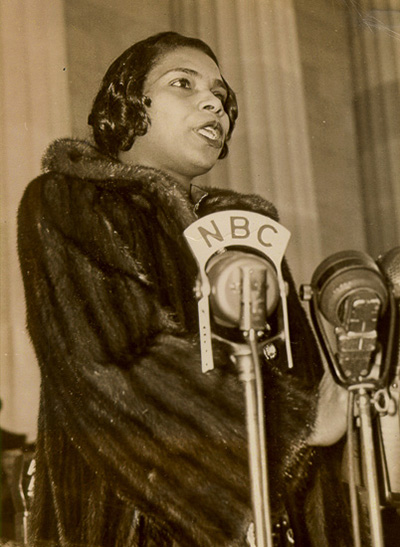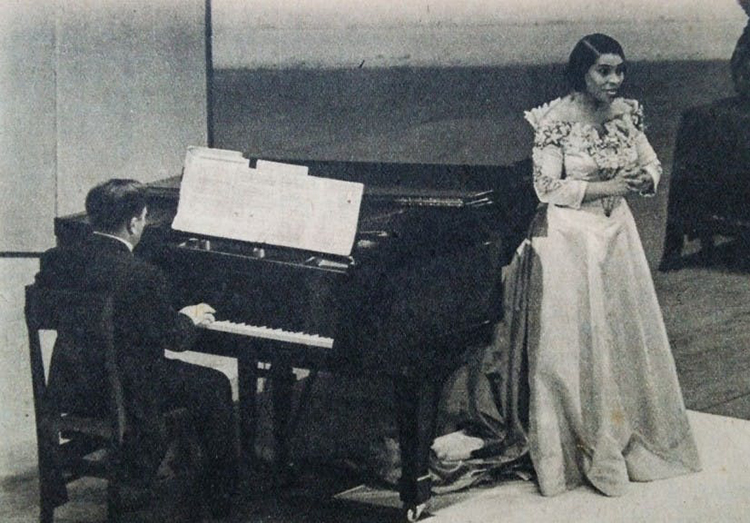Jennifer Pinto-Martin: University Ombuds
 Jennifer A. Pinto-Martin, Viola MacInnes/Independence Professor of Nursing and Executive Director of the Center for Public Health Initiatives in the School of Nursing and Professor of Epidemiology in the Perelman School of Medicine, has agreed to serve as University Ombuds, beginning on July 1, 2020 for a two-year term, President Amy Gutmann announced. Dr. Pinto-Martin succeeds Lynn Hollen Lees. “We are grateful to Lynn who served Penn exceedingly well as Ombuds following her distinguished service as Vice Provost for Faculty,” said President Gutmann.
Jennifer A. Pinto-Martin, Viola MacInnes/Independence Professor of Nursing and Executive Director of the Center for Public Health Initiatives in the School of Nursing and Professor of Epidemiology in the Perelman School of Medicine, has agreed to serve as University Ombuds, beginning on July 1, 2020 for a two-year term, President Amy Gutmann announced. Dr. Pinto-Martin succeeds Lynn Hollen Lees. “We are grateful to Lynn who served Penn exceedingly well as Ombuds following her distinguished service as Vice Provost for Faculty,” said President Gutmann.
“Jennifer, who served as chair of the Faculty Senate from 2018 to 2019, currently serves as the Chair of its ad hoc Committee Planning for Post-Pandemic Penn. Recently named one of two inaugural Penn Nurse Innovation Fellows, Jennifer has a record of University-wide service and experience, a breadth and depth of knowledge about Penn and higher education more broadly, and excellent judgement that will be invaluable during her term as University Ombuds. I am delighted that she has agreed to serve in this important role.”
An expert on autism and developmental disabilities, Dr. Pinto-Martin served as the Director, of Penn’s Master of Public Health Program for 12 years. From 2001-2018 she also served as the Director of the Pennsylvania Center for Autism and Developmental Disabilities Research and Epidemiology, which is one of six CDC-funded regional centers that together are conducting the Study to Explore Early Development (SEED). She holds appointments as a Senior Scholar at the Leonard Davis Institute for Health Economics (LDI), and the Center for Clinical Epidemiology and Biostatistics (CCEB).
Dr. Pinto-Martin is a member of the Scientific Review Committee, National Institutes of Neurological Disorders and Stroke, American Public Health Association, Society for Epidemiological Research and the International Society for Autism Research.
Dr. Pinto-Martin earned a bachelor’s degree from Stanford University, and a master’s degree in public health and a PhD in epidemiology, both from the University of California.
Melissa C. Thomas-Hunt, Geoffrey Garrett, Julia Lynch: Lauder Institute Appointments


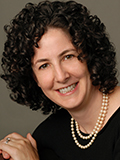 The Lauder Institute at the University of Pennsylvania recently announced three new appointments that will strengthen Lauder’s ability to fulfill its mission of developing outstanding business leaders who look globally, engage locally, and act responsibly to have a powerful impact in the world.
The Lauder Institute at the University of Pennsylvania recently announced three new appointments that will strengthen Lauder’s ability to fulfill its mission of developing outstanding business leaders who look globally, engage locally, and act responsibly to have a powerful impact in the world.
Melissa C. Thomas-Hunt and Geoffrey Garrett have been named Senior Global Fellows. As head of global diversity and belonging at Airbnb, Dr. Thomas-Hunt leads the strategy and execution of global internal diversity, inclusion, equity, and belonging programs. An expert on building inclusive, global teams, Dr. Thomas-Hunt joined Airbnb from Vanderbilt University, where she served as Vice Provost for Inclusive Excellence. In that role, she was responsible for helping advance equity, diversity, and inclusion in Vanderbilt’s academic research and community of students, faculty, and staff. Prior to her work at Vanderbilt, she served as global chief diversity officer at the University of Virginia’s Darden School of Business, where she was focused on ensuring that the student community was seen, heard, valued, and supported.
For 25 years, Dr. Thomas-Hunt has taught MBAs and executives leadership, team dynamics, and negotiations, and she has conducted research on the factors that unleash, leverage, and amplify the contributions made by individuals, particularly women, underrepresented individuals, and numerical minorities. Her publications have appeared in Research in Organizational Behavior, Organization Science, Organizational Behavior and Human Decision Processes, the Journal of Applied Psychology, the Journal of Experimental Social Psychology, Management Science, Personality and Social Psychology Bulletin and Research on Managing Groups and Teams. Dr. Thomas-Hunt received her master’s and doctoral degrees from Northwestern University’s Kellogg Graduate School of Management and her undergraduate degree in chemical engineering from Princeton University.
Geoff Garrett is the dean at the USC Marshall School of Business, where he is also the Dean’s Chair in Business Administration and professor of management and organization. Prior to serving as dean of the Wharton School from 2014 to 2020, Dr. Garrett was dean of the business schools at both The University of Sydney and UNSW and founding CEO of the United States Studies Centre in his native Australia. He also served as president of the Pacific Council on International Policy, and as founding dean of the International Institute and Vice Provost of International Studies at UCLA. Earlier in his career, he also held academic appointments not only at Wharton and at USC, but also at Oxford, Stanford and Yale universities.
Dr. Garrett is a fellow of the Australian Academy of the Social Sciences, a winner of the Foreign Policy Association Medal and the Advance Global Australian Award, and a member of the board of directors of Park Hotels and Resorts. He also sits on the Advisory Boards of the Indian School of Business and the Tsinghua University School of Economics and Management. A well-respected commentator on global business, economics and politics in major media outlets, he writes a regular series of articles as a LinkedIn influencer. Dr. Garrett holds a BA from the Australian National University, and an MA and PhD from Duke University, where he was a Fulbright Scholar.
Julia Lynch has been named a co-director of Lauder Institute. The primary responsibility of the Lauder co-director is to serve as the liaison between the Lauder Institute and the School of Arts & Sciences, including on matters related to SAS coursework and faculty. Dr. Lynch is a professor of political science at the University of Pennsylvania. She holds a PhD from the University of California, Berkeley, and a BA from Harvard. Her research focuses on the politics of inequality, public health, and social policy in the rich democracies, particularly the countries of western Europe. She has special interests in comparative health policy and the politics of health inequalities; comparative political economy of western Europe; southern European politics; and the politics of aging.
At Penn, she is co-director of the Penn-Temple European Studies Colloquium, on the advisory boards of the Leonard Davis Institute of Health Economics, the Italian Studies Program, and the bioethics minor, and faculty director of the European studies minor. She currently sits on the Executive Committee of the Faculty Senate, is a member of the University Council Committee on Personnel Benefits and previously chaired the Senate Committee on Academic Freedom and Responsibility. She is an editor of Socio-Economic Review, a multi-disciplinary journal focusing on analytical, political, and moral questions arising at the intersection of economy and society, and she serves on the editorial boards of Perspectives in Politics, Comparative Political Studies, Polity, Journal of European Social Policy, and Journal of Health Politics, Policy and Law.
In the wider world, Dr. Lynch is an expert advisor to the World Health Organization’s European regional office, past chair of the Health Politics and Policy section of the American Political Science Association, and past treasurer of the Council for European Studies.
Lance Freeman and Jamaal Green: Provostial Appointments in the Department of City and Regional Planning

 The Weitzman School recently announced two new faculty appointments for Academic Year 2020-2021 in the department of city and regional planning: Lance Freeman, a professor at Columbia University, as the Provost’s Distinguished Visiting Faculty Fellow, and planner and geographer Jamaal Green as a Post-Doctoral Fellow.
The Weitzman School recently announced two new faculty appointments for Academic Year 2020-2021 in the department of city and regional planning: Lance Freeman, a professor at Columbia University, as the Provost’s Distinguished Visiting Faculty Fellow, and planner and geographer Jamaal Green as a Post-Doctoral Fellow.
Each year, Penn appoints a senior scholar of national or international prominence as the Provost’s Distinguished Visiting Faculty Fellow based on a record of promoting civic engagement, scholarly innovation and inclusive communities. Dr. Freeman’s is the first such appointment at Weitzman.
“We are at a watershed moment in American history for how we think about cities—who they serve well, who they do not, and how we can do better,” said Penn Provost Wendell Pritchett. “Lance Freeman and Jamaal Green will provide invaluable insights into this urgent work.”
“I very much look forward to Lance and Jamaal’s contributions to our School and the University,” said Fritz Steiner, dean and Paley Professor at the Weitzman School. “I’m confident they’ll forge important connections here.”
“At a time when social justice has moved to the center of our national conversation, we need to better understand the ways in which housing policy supports or hinders our progress,” said Lisa Servon, the Kevin and Erica Penn Presidential Professor and chair of city and regional planning. She also leads the Penn Planning Equity Initiative (PPEI), a wide-ranging effort at Weitzman which aims to redefine planning research and practice, promote action research and its application, and stimulate public dialogue.
Dr. Freeman is a professor in the urban planning program at Columbia. His research focuses on affordable housing, gentrification, ethnic and racial stratification in housing markets, and the relationship between the built environment and well-being. Dr. Freeman teaches courses on community development, housing policy, and research methods. He has also taught in the Joseph Biden School of Urban Affairs and Public Policy at the University of Delaware. Previously, he worked as a researcher at Mathematica Policy Research, a leading social policy research firm in Washington DC. Dr. Freeman has published several articles in refereed journals on issues related to neighborhood change, urban poverty, housing policy, urban sprawl, the relationship between the built environment and public health, and residential segregation. Dr. Freeman is the author of the book There Goes the ’Hood: Views of Gentrification from the Ground Up (Temple University Press, 2006) and A Haven and a Hell: The Ghetto in Black America (Columbia University Press, 2019). Dr. Freeman obtained extensive experience working with community development groups as a community development coordinator for the North Carolina Institute of Minority Economic Development and as a research associate at the Center for Urban and Regional Studies in Chapel Hill, North Carolina. He also has professional experience working as a city planner for the New York City Housing Authority, and as a budget analyst for the New York City Department of Environmental Protection. Dr. Freeman holds a master of city and regional planning and PhD in city and regional planning from the University of North Carolina at Chapel Hill.
Dr. Green is a planner and geographer interested in the ways that the organization of our built environments exacerbate or inhibit social inequality. His research interests include exploring the connections between land use and economic development planning, specifically concerning the role of industrial lands in urban labor markets and greater labor market restructuring, and the application of spatial analysis to policy problems. While working for the State of Oregon Department of Human Services, Dr. Green worked on a variety of projects including developing a spatial risk analysis for child abuse and maltreatment, analyzing the location choices of marijuana dispensaries in Washington and Oregon in order to determine whether certain vulnerable populations were disproportionately exposed and assisted multiple research projects that required census data and mapping support. Dr. Green is interested in a broad range of topics, but he has always focused on the spatial distribution of resources and the foundational questions of social science of, “Who benefits? Who loses? Who pays?” He holds a master of city and regional planning from the University of North Carolina at Chapel Hill and a PhD in Urban Studies from Portland State University.
Options for Penn Commuters
Dear Parking Permit Holders and Penn Commuters:
During this period of change, we are finding that many members of the Penn Community are rethinking the way they choose to commute to campus. The following information will assist you in understanding the many options available to you—including retaining your parking permit status, carpooling, and public transportation—that best fit your circumstances.
—Penn Transportation and Parking
parking@upenn.edu
www.upenn.edu/parking
Free Parking for Penn, UPHS, and Penn Affiliates Extended Through August
Free parking for Penn, UPHS, and Penn Affiliates at University facilities will continue through the month of August. This free parking is available at these locations: Penn Museum; Chestnut 34; Walnut 38; Walnut 40 Garages; and the Penn Park lot.
Beginning September 1, Penn will resume charging fees to park in all campus garages and lots. As previously announced, permit rates will be held at the FY20 rates through December. Details about the FY21 rates can be found here.
New Options for Those Who May Need to Park on an Occasional Basis
For faculty and staff only driving to campus on an occasional basis (e.g., a couple of days per week or for half days), Penn is introducing three new options at Penn Museum, Chestnut 34, Walnut 38, and Walnut 40 Garages effective September 1st:
- discounted transient/visitor all-day rate of $15, payable on-site,
- evening rate after 3:30 p.m. and an all-day weekend rate of $12, payable on-site, and,
- 5-hour/day parking ticket for $11, payable onsite via the parking garage attendant with a Penn, UPHS, or Penn Affiliate ID. This option also may be purchased in advance at the Transportation and Parking Office.
Action for Permit Holders: Please Respond with your Choice No Later Than July 31, 2020
Recently, and email was sent to all Penn Permit Holders outlining several options available relative to their current permits and requesting that they complete a form to indicate their preferences regarding the status of their parking permit no later than July 31, 2020.
As a permit holder, you may:
- Continue as an active permit holder. You may continue parking at your currently assigned lot/garage. On September 1st, payroll deductions will resume, and you will see the deduction in your September pay statement(s). Even if you plan to continue parking, we ask that you still complete the form.
- Suspend your parking credentials. You may suspend your credentials between September 1st and February 1st. During that time, you will retain your current garage or lot assignment, but your credential we be deactivated for the suspension period. If you determine you need to resume your parking during the suspension period, you may contact the Transportation and Parking Office and renew your permit, effective for the first day of the month following your request. Important Note: patrons who choose this option will be contacted prior to February 1st to confirm whether they wish to reinstate their permit privileges and the associated payroll deductions.
- Cancel your permit. You may request cancellation of your parking permit. If you choose this option, your parking privileges will end as of September 1st. You are responsible for returning any parking access credentials in your possession (e.g. Hang Tag and AVI) to the Transportation and Parking Office. You may do so whenever you return to campus. You may also choose to do so by mailing them to the address below:
Penn Parking
Suite 447A
3401 Walnut Street
Philadelphia, PA 19104
Information for Commuters Who Wish to Obtain a Parking Permit
Commuters who wish to obtain a parking permit may apply online (https://penn.aimsparking.com/) for assignments that will be effective as early as the month of September. Please be aware that parking availability is limited, and it may not be possible to accommodate your preferred option. Once applications are reviewed, an email will be sent to you, advising of lot/garage availability. Applicants will be notified when parking assignments are confirmed and invited to visit the Transportation and Parking Office to pick up access credentials. You also will be notified if spaces are not available and offered the opportunity to be placed on a waiting list. Please note that due to the high demand for parking that we are experiencing, our response time is longer than normal and it may take up to 10 business days to process your application.
Other Helpful Information and Options for Faculty and Staff Returning to Campus
- Penn is experiencing a higher percentage of commuters choosing to drive—and park—their own vehicles. If a garage or lot is closed, signage will direct patrons to other nearby open facilities. To view a map of Penn lots and garages, visit www.upenn.edu/parking Please note that the Penn Park lot tends to fill up by 7:30 a.m. Penn Museum garage fills by 8:30 a.m. and the Chestnut 34 fills around 9 a.m. The best locations for parking availability are Walnut 38 and Walnut 40 Garages.
- Staff interested in signing up for public transportation can do so with Health Equity/WageWorks, https://idp.pennkey.upenn.edu/idp/profile/SAML2/Unsolicited/SSO?providerId=WageWorks (please note, when you click this link, you will be directed to add your PennKey and password before accessing this site.) Commuters must place their September order no later than August 10. Please remember to take appropriate precautions when using public transport. Always wear a mask or face covering and do not touch your face. Physically distance to the greatest extent possible. Travel outside of peak commuting times whenever possible. Use antibacterial gel when leaving the vehicle and wash your hands thoroughly when you arrive at your destination.
- For those interested in exploring carpool options, Penn offers a 25% discount on parking permits for 2-passenger carpools, a 50% discount for 3-passenger carpools, and 75% for 4-passenger carpools. Click here to learn more about car pool or van pool programs along with other options available in Penn’s discounted sustainable transit commuting program.
- Penn Transit Services operates fixed-route and on-demand transportation within specific boundaries. This free service is available to PennCard holders. Download the free PennRides on Request mobile application from the App Store or Google Play or visit www.upenn.edu/PennTransit for information. Bus and shuttle services resume their normal schedules on Monday, August 24, 2020.
- If you have not traveled to campus recently, sign up for the Division of Public Safety’s Traffic Advisories. Additionally, we remind everyone of Public Safety’s 24/7 Walking Escort Program.
The Transportation and Parking Office will resume operations on campus on Monday, August 3, from 9 a.m. to 4 p.m. Monday–Friday. Beginning Friday, August 21, daily hours will expand to 8:30 a.m. to 5 p.m. In the meantime, staff may be reached at parking@upenn.edu
The team at Penn Parking appreciates your support for our services and encourage you to consider the many options that Penn makes available to assist in your commute to, from, and around campus. Thank you!
Recognizing Juneteenth
I was so grateful to Dr. Gutmann for encouraging the observance of Juneteenth this year. I am disappointed to see that Juneteenth has not yet made it to the list of Recognized Holidays for Fiscal Year 2021. Hopefully this encouragement will become a recognition sooner rather than later.
Thanks so much for taking the time to read my comment.
—Catherine E Smith, Clinical Research Coordinator
Supporting the Penn for PILOTS Petition
Over the past several decades, Penn has made increasingly significant financial and educational investments in its West Philadelphia community. Those efforts should be acknowledged with respect and indeed with pride by all of us who are associated with the University.
Now, however, Penn must do more. One of the nation’s 10 wealthiest universities is located in the poorest of the 10 largest American cities. The consequences of that poverty for education are profound. Philadelphia’s public schools have for decades been grossly underfunded, their students the victims of inexcusable Commonwealth indifference and systemic political incompetence. The pandemic will cause further reductions in budget allocations to public education and further harm to the city’s public school students.
Penn cannot by itself solve all the many problems the School District’s students and teachers confront: from the elimination of vital student support services, to the remediation of toxic asbestos, to the educational deficits incurred by too-large classes.
However, while Penn cannot solve all those problems, it can assist in addressing some of them. The proposed Educational Equity Fund, administered independently of Penn’s administration, offers the most democratic and effective mechanism for the allocation of the funds that Penn would contribute.
Recall that 86% of the students in Philadelphia’s public schools are young people of color, 52% African-American. These students and their families and their teachers deserve better, and Penn can and must play a substantial part in the effort to make things better.
The time has always been right for Penn to join the other universities that have agreed to enter into PILOT arrangements. But the time has never been more crucially right, in the wake of the pandemic, the resulting economic impact, and the growing nationwide awareness of the racism that has for centuries so profoundly disfigured our civic life, and continues to do so today.
I join with my colleagues in urging Penn’s administration and trustees to move expeditiously toward the implementation of the necessary PILOT agreements. The University’s participation in this program will confirm our dedication to Philadelphia and its citizens, and especially to the city’s young people.
—Peter Conn, Vartan Gregorian Professor of English Emeritus; Professor of Education
---
Speaking Out welcomes reader contributions. Short, timely letters on University issues can be accepted by Thursday at noon for the following Tuesday’s issue, subject to right-of-reply guidelines. Advance notice of intention to submit is appreciated. —Eds.
 Jennifer A. Pinto-Martin, Viola MacInnes/Independence Professor of Nursing and Executive Director of the Center for Public Health Initiatives in the School of Nursing and Professor of Epidemiology in the Perelman School of Medicine, has agreed to serve as University Ombuds, beginning on July 1, 2020 for a two-year term, President Amy Gutmann announced. Dr. Pinto-Martin succeeds Lynn Hollen Lees. “We are grateful to Lynn who served Penn exceedingly well as Ombuds following her distinguished service as Vice Provost for Faculty,” said President Gutmann.
Jennifer A. Pinto-Martin, Viola MacInnes/Independence Professor of Nursing and Executive Director of the Center for Public Health Initiatives in the School of Nursing and Professor of Epidemiology in the Perelman School of Medicine, has agreed to serve as University Ombuds, beginning on July 1, 2020 for a two-year term, President Amy Gutmann announced. Dr. Pinto-Martin succeeds Lynn Hollen Lees. “We are grateful to Lynn who served Penn exceedingly well as Ombuds following her distinguished service as Vice Provost for Faculty,” said President Gutmann.


 The Lauder Institute at the University of Pennsylvania recently announced three new appointments that will strengthen Lauder’s ability to fulfill its mission of developing outstanding business leaders who look globally, engage locally, and act responsibly to have a powerful impact in the world.
The Lauder Institute at the University of Pennsylvania recently announced three new appointments that will strengthen Lauder’s ability to fulfill its mission of developing outstanding business leaders who look globally, engage locally, and act responsibly to have a powerful impact in the world.
 The Weitzman School recently announced two new faculty appointments for Academic Year 2020-2021 in the department of city and regional planning: Lance Freeman, a professor at Columbia University, as the Provost’s Distinguished Visiting Faculty Fellow, and planner and geographer Jamaal Green as a Post-Doctoral Fellow.
The Weitzman School recently announced two new faculty appointments for Academic Year 2020-2021 in the department of city and regional planning: Lance Freeman, a professor at Columbia University, as the Provost’s Distinguished Visiting Faculty Fellow, and planner and geographer Jamaal Green as a Post-Doctoral Fellow. Dr. David C. Cottrell II, former clinical assistant professor in PSOM, died June 5 at his home in Winfield. He was 86.
Dr. David C. Cottrell II, former clinical assistant professor in PSOM, died June 5 at his home in Winfield. He was 86.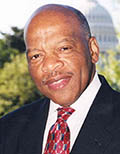 John Lewis, US Representative for Georgia’s 5th Congressional District, died on July 17 at the age of 80. After his death, President Amy Gutmann posted, “John Lewis was the truest of American heroes. He lived a life of the utmost courage, standing up to Jim Crow and countless assaults on the inalienable rights of Black Americans. He fought tirelessly for civil rights and social justice for all, and became the conscience of the United States Congress. It was a personal honor to know him, and present him with an honorary degree from Penn [
John Lewis, US Representative for Georgia’s 5th Congressional District, died on July 17 at the age of 80. After his death, President Amy Gutmann posted, “John Lewis was the truest of American heroes. He lived a life of the utmost courage, standing up to Jim Crow and countless assaults on the inalienable rights of Black Americans. He fought tirelessly for civil rights and social justice for all, and became the conscience of the United States Congress. It was a personal honor to know him, and present him with an honorary degree from Penn [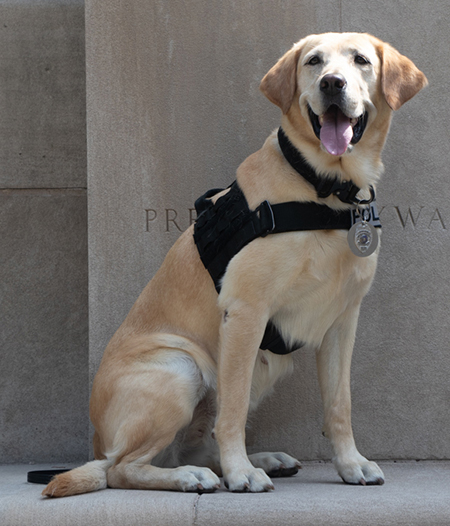
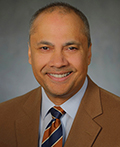 Paul J. Mather, cardiologist and professor of clinical medicine in the Perelman School of Medicine at the University of Pennsylvania, has been named the American Heart Association’s (AHA) 2020 Physician of the Year.
Paul J. Mather, cardiologist and professor of clinical medicine in the Perelman School of Medicine at the University of Pennsylvania, has been named the American Heart Association’s (AHA) 2020 Physician of the Year. Rakesh Vohra, George A. Weiss and Lydia Bravo Weiss University Professor, has won the 2020 SIGecom Test of Time Award for his paper, “Calibrated Learning and Correlated Equilibrium.”
Rakesh Vohra, George A. Weiss and Lydia Bravo Weiss University Professor, has won the 2020 SIGecom Test of Time Award for his paper, “Calibrated Learning and Correlated Equilibrium.”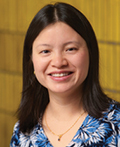 Shu Yang, professor in the SEAS departments of materials science engineering and chemical and biomolecular engineering, has been awarded a Manufacturing PA Innovation grant to develop a new kind of medical adhesive. Inspired by the biology of snails, the gel-based adhesive could be applied to open wounds, then harden into a protective film.
Shu Yang, professor in the SEAS departments of materials science engineering and chemical and biomolecular engineering, has been awarded a Manufacturing PA Innovation grant to develop a new kind of medical adhesive. Inspired by the biology of snails, the gel-based adhesive could be applied to open wounds, then harden into a protective film.